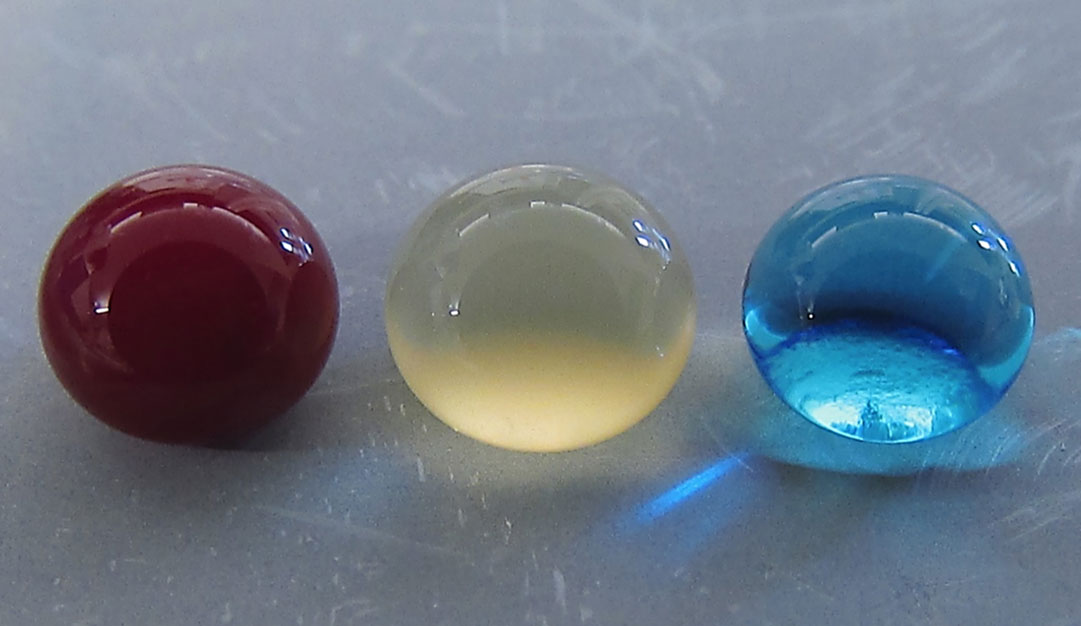Researchers at Colorado State University believe they’ve come up with a unique way to minimize one of the most worrisome complications that follow a medical implant. They have developed a modified titanium surface that repels blood. The hope is that the material can be used for stents, catheters, and other medical implants that are especially susceptible to blood clotting and infection.
“The reason blood clots is because it finds cells in the blood to go to and attach,” says Ketul Popat, PhD, associate professor of mechanical engineering and biomedical engineering. “Normally, blood flows in vessels. If we can design materials where blood barely contacts the surface, there is virtually no chance of clotting, which is a coordinated set of events. Here, we’re targeting the prevention of the first set of events.”

Blood, plasma and water droplets beading on a superomniphobic surface. CSU researchers have created a superhemophobic titanium surface, repellent to blood, that has potential applications for biocompatible medical devices. (Image credit: Colorado State University)
Popat teamed with Arun Kota, PhD, a fellow professor in the department and an expert on superomniphobic materials (substances that repel any liquid), in the research. In their labs, titanium sheets were used as a platform for growing a new chemically altered surface that would create a barrier between the metal and the blood.
The resulting surface is so repellent to blood that it effectively tricks the biology into believing there is no foreign object present, short-circuiting the natural response of attacking it, which then results in clotting and infection. With that risk significantly reduced, patients with an implant could go without common countermeasures such as blood thinners.
“We are taking a material that blood hates to come in contact with, in order to make it compatible with blood,” says Kota.
Thus far, testing has been confined to the lab, but results are promising enough that researchers are hoping to eventually try the substance on medical devices.
The research was published in a recent issue of Advanced Healthcare Materials.




